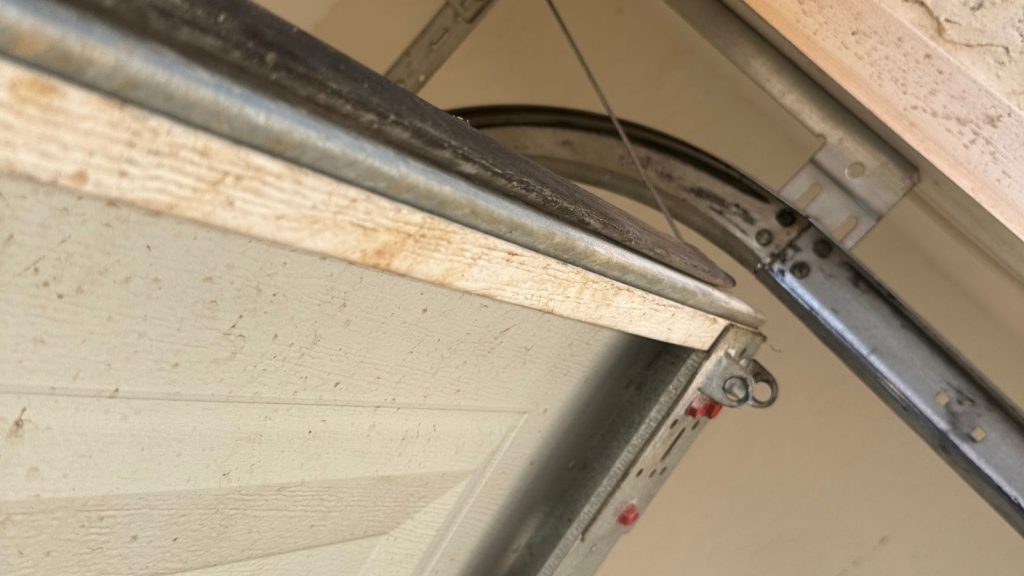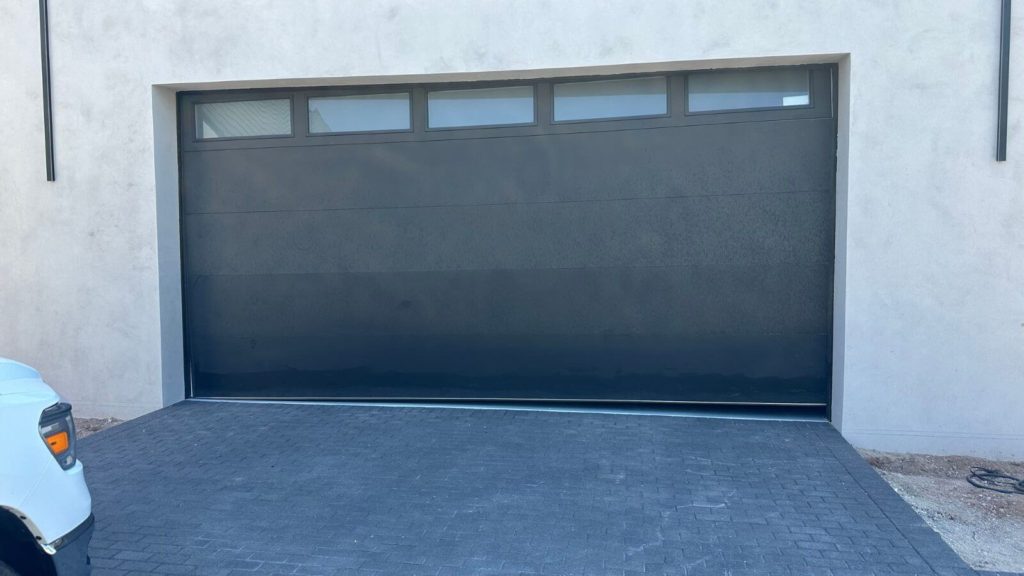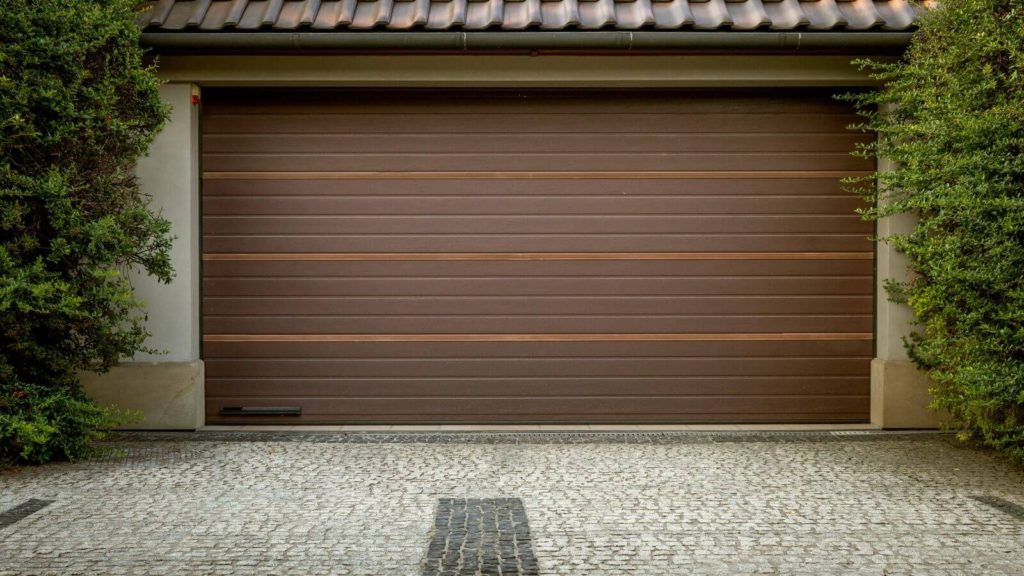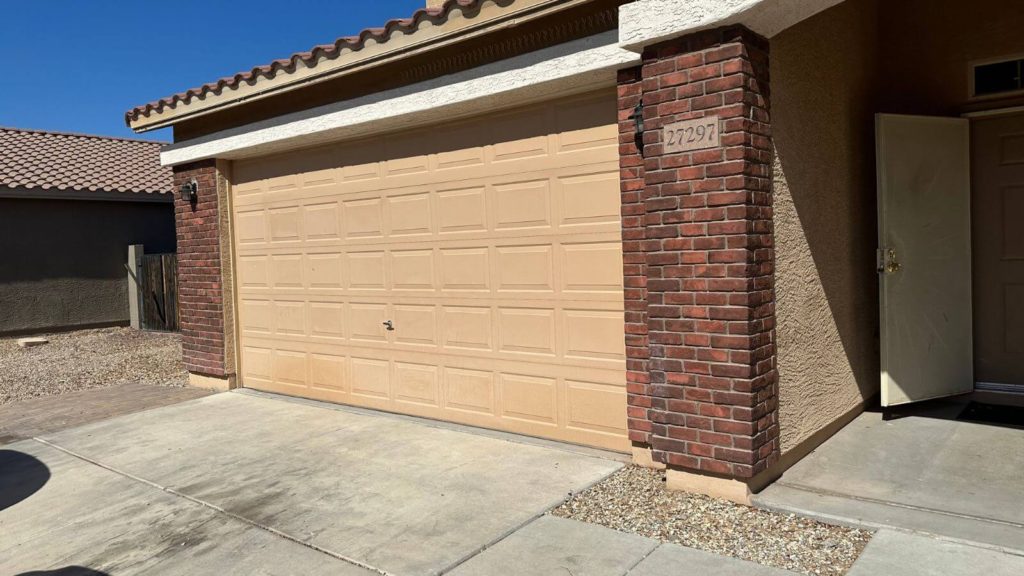Living in the Greater Phoenix area means enjoying over 300 days of sunshine each year, but it also means contending with extreme heat, monsoon storms, dust, and occasional hail. While garage doors are built to last, the desert climate in Phoenix can significantly impact their performance and lifespan. Whether you’re in Scottsdale, Mesa, Chandler, or right here in Phoenix, it’s important to understand how our unique weather affects different garage door components—and what you can do to maintain or upgrade your door.
Let’s take a closer look at how various components of your garage door system respond to the hot, dry climate and seasonal storms common across Maricopa County.
Garage Door Seals in the Greater Phoenix Area
Garage door seals are your first line of defense against the elements—and in Phoenix, that means scorching heat, fine dust, and seasonal rain. Here are the main types of seals and how they hold up in Arizona weather.
- Brush Seals: Ideal for keeping out dust and light rainfall, common in desert suburbs like Tempe and Ahwatukee. However, they provide minimal insulation, which can increase your energy bills as your HVAC works harder.
- Bulb Seals: Offer better insulation, sealing in cool air and blocking heat. But beware: under the constant exposure to Phoenix’s summer sun, they may crack or degrade faster.
- Vinyl Seals: Work well in high heat and are more resistant to UV rays. However, vinyl can become brittle over time, especially if your garage faces west and takes the full brunt of the afternoon sun.
- Rubber Seals: The most common and affordable. While they provide basic protection, they wear out quickly in extreme temperatures and may need frequent replacement in cities like Glendale or Goodyear.

Garage Door Windows in the Arizona Heat
Garage door windows are a great aesthetic addition, but they must be chosen wisely in Phoenix’s hot climate. According to Glass Genius, the most common thicknesses are 1/8”, 3/16”, and 1/4”.
For homes in the Valley—including Peoria, Gilbert, and Queen Creek—we recommend 3/16” or 1/4” tempered glass to help prevent shattering during hail storms or temperature fluctuations. Proper installation is key to preventing dust infiltration or heat-related warping.
How Door Materials Hold Up in Phoenix
Steel Doors
A top choice for Phoenix homes due to their durability and sleek appearance. While they can dent from monsoon debris or hail, they’re generally low-maintenance. Insulated steel doors are recommended to help keep garages cooler in summer.

Wood Doors
Cost-effective but not ideal for Arizona. Wood can absorb moisture during monsoon season, causing it to swell, then crack when it dries. Not recommended in areas like Cave Creek or Laveen where weather swings can be more intense.

Fiberglass & Aluminum Doors
Lightweight and weather-resistant, but they may crack in prolonged heat or fade under intense sun exposure. These are better suited for shaded garages or north-facing homes in areas like Paradise Valley or Fountain Hills.

Garage Door Frames: Best Options for Arizona Homes
Your garage door frame supports the entire system, so it needs to withstand the Valley’s tough conditions.
Wood Frames
Common and cost-effective, but require regular upkeep. Prolonged exposure to standing water from irrigation or clogged gutters can cause rot. In desert cities like Surprise or Buckeye, this is a frequent concern after monsoon rains.
Aluminum Frames
Rarely used in Phoenix due to their tendency to dent easily and offer minimal structural support. While they may be installed for aesthetic purposes, they’re not ideal for long-term durability in Arizona.
Steel Frames
The best option for homes in the Phoenix metro area. These frames offer the most durability, curb appeal, and weather resistance. While pricier, they’re ideal for homeowners in high-end neighborhoods like Arcadia or Desert Ridge looking for long-lasting value.
Final Thoughts: Protecting Your Garage Door in the Valley of the Sun
If you’re a homeowner in Phoenix or any surrounding cities, your garage door is constantly battling the elements. From blistering sun to monsoon dust storms, choosing the right materials, seals, and frame can make all the difference. Whether you’re looking to replace a worn-out door, upgrade to something more energy efficient, or simply need a few repairs, understanding how the local weather affects your system is key.
Considering a garage door upgrade in Phoenix, Scottsdale, Chandler, and surrounding areas? Contact us today to assess your needs and find the right solution for your home.
